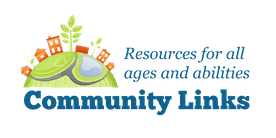Labels and Misdiagnoses
This page will take a look at how to address behavioral challenges in children. In particular, children in daycare, preschool, or in school. It is important to avoid judging specific behaviors children may have. Our goal is to be an educational resource for families who may be struggling with their behavior. We hope to provide you with local resources for options to help you care for your child better.
We will begin with the societal tendency to assign labels to people. For example, a child may be very disruptive in their preschool by yelling at others. This child could also not be following directions from the teacher. Parents are then placed in a situation where they know that their child needs help, but may soon get expelled. A common source of help for their child’s behavior is Therapeutic Support Staff (TSS). To get a TSS worker, the parent first must have their child evaluated, then diagnosed from a psychologist or a psychiatrist. After receiving this diagnosis, the parents can reach out to Wraparound services for behavioral support. It is important to note that this process may take months.
Child Mind Institute’s publication, The Most Common Misdiagnoses in Children, is worth a good read about possible misdiagnoses. A misdiagnosis may occur if the child’s behaviors are not identified correctly. As a result, behavioral interventions may be ineffective or harmful to the child. Christina Rainville’s article, Recognizing Signs of Undiagnosed and Misdiagnosed Disabilities in Your Child Client, provides more information about this. Although the article is geared towards lawyers, it can be very helpful to parents and caregivers.
A child’s behavior is just the tip of the iceberg when it comes to finding the root cause of them. There are also several environmental factors such as the current setting, play, trauma or substance abuse that may be affecting that child.
As parents and caregivers, we naturally advocate for our children. An article from MD Edge written by Dr. John Hickner, When Our Biases Derail the Diagnosis, has a detailed information about anchoring. Occasionally, different answers may be given because of real biases. As an advocate for your child, you know your child the best. Consider the different opinions and perspectives out there and for a solution that targets the right cause(s).
Why might an intervention be ineffective?
One answer can be quite simple if not obvious: the true functionality of the behaviors has not been identified. For example, someone with post-traumatic stress disorder (PTSD) might be diagnosed and treated as if they have oppositional defiance disorder (ODD). We encourage you to advocate to the function of the behavior, more so than the behavior itself.
To figure out why an intervention(s) is not working, you first need to find the root cause of the challenging behaviors. This is not easy and can require difficult conversations and deep reflections. We have attached some resources below to help you build trust and strengthen your bond with your loved ones. If you have identified the cause and intervention is still are not working, try something different. Is there adequate communication between all of the stakeholders in your child’s care? Are you utilizing the right resources to address the problem?
What do I do now? What are my options?
Being told that your child is having behavioral challenges in school is stressful. Often times schools will require immediate intervention to occur or the child will be expelled. The timeline can be overwhelming and may lead to labeling. Below, we have provided local resources for access to persons/organizations that may be helpful whether you have just been thrown into this challenge or are running out of options to try.
We do not expect everything on this list to be relevant to you, but we do encourage you to be open to everything on the list. There are persons/organizations that might seem out of place, but they are all there as a resource to help with your child’s behavioral challenges.
- Primary care physician (PCP)
- Local mental health and intellectual/developmental disability (MH.IDD) office
- Daycare or School faculty
- Child and Adolescent Social Service Program (CASSP)
- Cumberland/Perry CASSP Coordinator
- Megan Johnston: Phone: (717) 240-6320 | Email: Mejohnston@cumberlandcountypa.gov
- Site: https://www.cumberlandcountypa.gov/2489/CASSP-Program
- Dauphin CASSP Coordinator
- Rachael Clifton: Phone: (717) 780-7052 | Email: rclifton@dauphincounty.gov
- Cumberland/Perry CASSP Coordinator
- MH.IDD County Offices
- Department of Drug & Alcohol Services — Single County Authorities (SCAs)
- Cumberland/Perry D&A Commission
- Phone: 717-240-6300 | Email: cumbperrydanda@cumberlandcountypa.gov
- Site: https://www.cumberlandcountypa.gov/115/Drug-Alcohol-Commission
- Dauphin D&A Services
- Phone: (717) 635-2254
- Site: https://www.dauphincounty.gov/government/human-services/drug-alcohol-services
- Cumberland/Perry D&A Commission
- Office of Children, Youth, and Families (OCYF)
- PA OCYF Deputy Secretary
- Amy Grippi: Phone: (717) 787-4756 | Email: agrippi@pa.gov
- PA OCYF Deputy Secretary
Below, you can find various infographics, articles, and sites that are relevant to behavioral challenges, such as parenting tips and information on trauma.
Additional Resources:
- ACE Questionnaire and Tips for Teachers
- Age Related Reactions to a Traumatic or Stressful Event
- Healthy in All Ways
- How to nurture a child’s mental health
- Impact of Childhood Trauma Infographic
- Protective Factors for Strengthening Families
- The Emotional Cup
- Tips for Parents & Caregivers to maintain a healthy relationship



